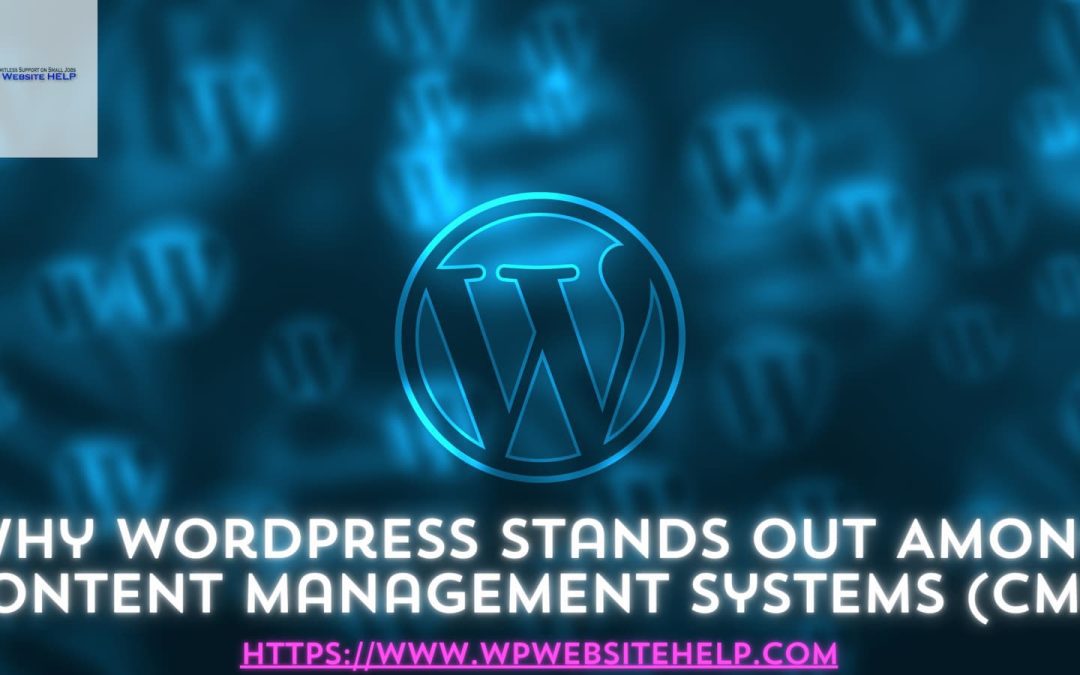In the vast ecosystem of Content Management Systems (CMS), WordPress has emerged as a dominant and popular choice for website creation and management. CMS platforms serve as the foundation for websites, allowing users to easily create, manage, and modify content without extensive technical knowledge.
The Rise of WordPress in the CMS Landscape
WordPress, initially established as a blogging platform, has evolved into a versatile CMS powering diverse websites, from blogs to e-commerce sites and beyond. Its exponential growth is attributed to various factors that set it apart from other CMS options available in the market.
User-Friendly Interface and Flexibility
One of WordPress’s defining features is its intuitive and user-friendly interface. Even individuals with minimal technical expertise can navigate and operate WordPress effortlessly. Its flexibility enables users to customize websites according to their specific requirements without extensive coding.
Wide Range of Plugins and Themes
WordPress boasts an extensive library of plugins and themes, offering endless possibilities for customization. Users can augment their site’s functionality with plugins and enhance aesthetics with diverse themes, catering to different industries and design preferences.
SEO-Friendly Nature of WordPress
WordPress inherently prioritizes search engine optimization (SEO). Its structure and various plugins simplify the optimization process, enabling websites to rank higher in search engine results, garnering greater visibility and organic traffic.
Community Support and Updates
The thriving WordPress community contributes significantly to its continuous improvement. Regular updates, security patches, and a vast knowledge base are a testament to the collaborative effort, ensuring users have access to the latest features and security enhancements.
Security Features and Reliability
WordPress emphasizes security, providing robust measures to safeguard websites against potential threats. While no platform is entirely immune, WordPress’s commitment to security and regular updates bolsters its reliability.
Comparison with Other CMS Options
Comparatively, WordPress outshines many other CMS platforms due to its combination of user-friendliness, versatility, and extensive features. While alternatives exist, few match WordPress’s comprehensive package.
Cost-Effectiveness and Scalability
WordPress offers cost-effective solutions for both beginners and established businesses. Its scalability allows seamless expansion as businesses grow, ensuring websites can accommodate increased traffic and functionalities.
Customization and Ease of Use
The ease of customization and user-friendly nature make WordPress an ideal choice for individuals and businesses seeking a tailored online presence without the complexity of extensive coding.
Speed and Performance Advantages
WordPress’s optimization features contribute to superior speed and performance, critical factors influencing user experience and search engine rankings.
Mobile Responsiveness and Accessibility
In an era dominated by mobile devices, WordPress’s responsiveness across various screen sizes enhances accessibility, ensuring a consistent and engaging user experience.
Content Management Capabilities
The robust content management capabilities of WordPress empower users to effortlessly create, publish, and manage diverse content types, from articles and multimedia to product listings.
Integration and Compatibility
WordPress seamlessly integrates with numerous third-party tools and services, enhancing functionality and compatibility, and catering to diverse business needs.
In conclusion, WordPress’s dominance in the CMS market is a result of its user-centric approach, extensive features, SEO friendliness, security measures, and scalability. Its continuous evolution and community-driven support solidify its position as a leading choice among CMS platforms.
Read Also: 5 Language Translator Plugins for WordPress
We are dedicated to sharing useful content for WordPress websites in the business & personal communities. This includes any related topics indirectly related to WordPress, marketing, advertising, e-commerce, technology, or any other online subjects we feel would benefit our readers and customers.
Debashrita @ The WP Website Help Team

